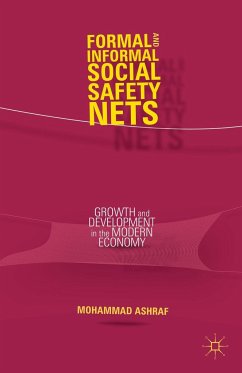"In short, with respect to this topic, this book scores a perfect trifecta. It needed to be written, it needed to be published, [and] it needs to be read." - Robert O. Schneider, Professor of Public Administration, University of North Carolina Pembroke, USA; Author, Emergency Management and Sustainability
"In an era when so much economic analysis has been driven by neo-liberal and anti-government ideologies, Ashraf has written a refreshingly objective examination of the costs and benefits of safety nets. It is a comprehensive, trenchant study of all the major issues surrounding this important topic, such as: (a) the need for safety nets in modern society; (b) their role in promoting innovation, economic development, and social stability; (c) problems like free-riding; and (d) methods of financing safety nets. Ashraf argues that, rather than undermining the incentive structure of a modern economy, as some assume, safety nets actually stimulate economic activity by supporting demand in times of recession, maintaining valuable skills in the workforce, reducing costly anti-social reactions to unemployment; and strengthening social and political cohesion. In short, they are a cost-effective tool. This volume is an excellent guide for policy makers, and it provides a very incisive literature review for researchers wishing to work in the field." - Michael L. Stratil, Associate Professor of Psychology (Retired), University of North Carolina Pembroke, USA
"In an era when so much economic analysis has been driven by neo-liberal and anti-government ideologies, Ashraf has written a refreshingly objective examination of the costs and benefits of safety nets. It is a comprehensive, trenchant study of all the major issues surrounding this important topic, such as: (a) the need for safety nets in modern society; (b) their role in promoting innovation, economic development, and social stability; (c) problems like free-riding; and (d) methods of financing safety nets. Ashraf argues that, rather than undermining the incentive structure of a modern economy, as some assume, safety nets actually stimulate economic activity by supporting demand in times of recession, maintaining valuable skills in the workforce, reducing costly anti-social reactions to unemployment; and strengthening social and political cohesion. In short, they are a cost-effective tool. This volume is an excellent guide for policy makers, and it provides a very incisive literature review for researchers wishing to work in the field." - Michael L. Stratil, Associate Professor of Psychology (Retired), University of North Carolina Pembroke, USA








